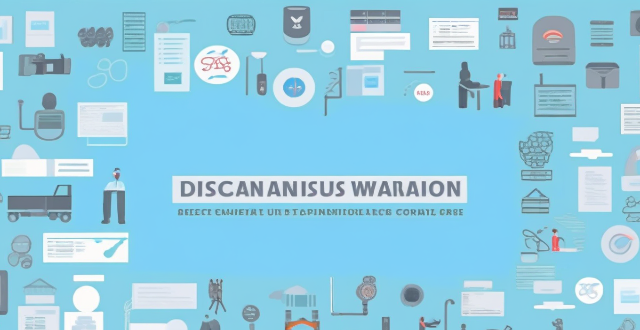Military Intervention

What are the ethical considerations for military interventions in the face of climate-related disasters ?
Ethical Considerations for Military Interventions in the Face of Climate-Related Disasters: 1. Humanitarian Aid vs. Military Intervention: Evaluating the necessity and appropriateness of military intervention for providing humanitarian aid, considering potential conflicts and misuse of funds. 2. Respect for Sovereignty: Ensuring any military intervention is conducted with the full cooperation and consent of the affected country's government to avoid violating international law and causing political tensions. 3. Non-Discrimination and Impartiality: Providing aid based on need rather than political or religious affiliation, avoiding bias or favoritism towards certain groups. 4. Protection of Civilians: Prioritizing the safety and well-being of civilian populations during military interventions, minimizing harm to non-combatants and ensuring aid reaches those who need it most. 5. Accountability and Transparency: Documenting all actions taken during military interventions and making them available to relevant stakeholders, including the affected community, donors, and international organizations, to ensure effective and efficient use of resources and address potential issues promptly.

What is the impact of communication interference on military operations ?
The text discusses the impact of communication interference on military operations. It highlights five main consequences: loss of situational awareness, delayed response times, compromised security, reduced coordination, and increased risk of misinterpretation. The author emphasizes the importance of secure and reliable communication systems for effective military strategy and suggests developing contingency plans to mitigate the risks associated with communication interference.

How do communication satellites support military operations and intelligence gathering ?
This text discusses how communication satellites support military operations and intelligence gathering, highlighting their role in secure communication channels, wide area coverage, high-speed data transmission, surveillance and reconnaissance, coordination and command, resilience and redundancy.

How does extreme weather impact mental health ?
This comprehensive analysis discusses the impact of extreme weather events on mental health, highlighting immediate emotional responses, trauma, stress, long-term effects like PTSD and depression, community impact, and intervention strategies. It emphasizes the need for early intervention, community support, accessible resources, and resilience building to address these challenges effectively.

How do military strategies need to adapt to address the consequences of climate change ?
The text discusses the challenges and adaptations necessary for military strategies to account for the consequences of climate change. It emphasizes the need for impact assessments, operational planning, training and preparation, technology and innovation, cooperation and diplomacy, and readiness and response. Key points include understanding how climate change affects specific regions, developing resilient supply chains and adaptive infrastructure, incorporating climate change into training scenarios, utilizing advanced predictive tools, working with allies and international organizations, and establishing rapid response capabilities. By integrating these elements into defense policy, militaries can remain effective and resilient in the face of a changing climate.

How do you handle behavior challenges in students with special education needs ?
Handling behavior challenges in students with special education needs requires a variety of strategies, including positive reinforcement, clear and consistent rules, individualized intervention plans, differentiation and accommodations, collaboration and communication, training and professional development, and crisis prevention and intervention. It is important to work closely with other educators, therapists, and parents to ensure a unified approach to addressing these challenges. By employing these strategies and maintaining open communication with the student, their family, and educational team, educators can create an environment where all students have the opportunity to succeed.

How does climate change influence the operational environments for defense forces ?
Climate change is significantly impacting the operational environments for defense forces, affecting military planning, strategy, and tactics. Extreme weather events are becoming more frequent, requiring defense forces to manage or support disaster response operations. Changes in terrain and landscape due to melting ice caps and rising sea levels can affect military operations. Climate change can exacerbate social tensions and conflicts over resources, leading to internal displacement and potential security threats. Health risks and disease spread can expand due to changes in temperature and rainfall patterns. Energy requirements and logistics may need adjustments in operational environments affected by climate change.

What are the potential threats to national security posed by climate change ?
The text discusses the potential threats to national security posed by climate change, which include economic disruption, social unrest, health risks, and national defense issues. Economic disruptions can occur due to loss of infrastructure, agricultural decline, and displacement of workforce. Social unrest may arise from resource wars, refugee crises, and increased crime rates. Health risks involve the spread of diseases, heat-related illnesses, and air quality issues. National defense challenges include loss of territory, military bases at risk, and conflict over resources. The text emphasizes the need for urgent attention and coordinated action from governments worldwide to address these complex challenges.

Is there a relationship between exercise and cognitive function ?
Exercise is a potential intervention for enhancing cognitive function across the lifespan. The relationship between exercise and cognitive function is complex and multifaceted, involving various aspects of cognition and different types of exercise. Long-term exercise interventions have consistently shown positive effects on cognitive function, particularly in older adults. Different types of exercise may influence specific cognitive functions differently, and the underlying mechanisms behind these effects are still being explored. By incorporating regular physical activity into our daily routines, we can potentially enhance our cognitive function and overall well-being.

What are some famous works of literature that incorporate sports themes ?
Sports-themed literature has captivated readers for centuries, exploring aspects of human nature and society. Famous works include "The Natural" by Bernard Malamud, "Friday Night Lights" by H.G. Bissinger, "Ender's Game" by Orson Scott Card, "Seabiscuit: An American Legend" by Laura Hillenbrand, and "The Art of War" by Sun Tzu. These works showcase the diverse ways sports can be incorporated into storytelling, delving into complex issues such as ambition, competition, teamwork, and personal growth.

Are there alternatives to taking out a student loan for college expenses ?
There are several alternatives to student loans for covering college expenses, including scholarships and grants, work-study programs, employer tuition assistance, military benefits, and crowdfunding and community support. Scholarships and grants are typically awarded based on academic merit or financial need, while work-study programs allow students to earn money through part-time jobs. Employer tuition assistance programs may cover all or a portion of tuition costs, and serving in the military can provide access to educational benefits like the GI Bill. Crowdfunding platforms and community organizations can also provide financial support for students in need.

Are there any restrictions on what I can buy and ship to my country ?
**Restrictions on International Purchases and Shipping:** When buying and shipping items internationally, restrictions vary by country to ensure safety, prevent disease spread, and maintain economic balance. Restricted items often include agricultural products, animal products, cultural artifacts, dangerous goods, electronic devices, medication, military items, and products from protected species. Additionally, many items face customs duties and taxes. It is crucial to research specific regulations before making an international purchase to avoid legal issues and contribute to broader goals like public safety and cultural preservation.

What are some examples of successful sports charity events ?
Successful sports charity events like the Nike Foundation's "Girl Effect" Marathon, The Komen Race for the Cure, and The Wounded Warrior Project's Carry Forward 5K have raised millions of dollars for various causes by combining the excitement of sports with philanthropy. These events engage participants in physical activity, raise funds and awareness for important causes, and create a sense of community among participants and supporters.

Are there any risks or drawbacks associated with sport psychology counseling ?
Sport psychology counseling is a specialized form of psychological intervention that aims to enhance athletic performance, improve mental toughness, and foster personal growth in athletes. While the benefits of sport psychology counseling are well-documented, it is essential to consider any potential risks or drawbacks associated with this type of intervention. The risks and drawbacks include: - Lack of qualified professionals - Overreliance on counseling - Inappropriate interventions - Ethical considerations - Financial costs - Cultural differences To mitigate these risks, athletes should seek out qualified professionals with appropriate certifications and experience in sport psychology counseling, communicate openly with their counselor about their goals and concerns, choose counselors who prioritize ethical practices, explore options such as group sessions, online counseling, or sliding scale fees to reduce costs, and counselors should strive to understand and respect the cultural backgrounds of their clients and adapt their approaches accordingly. By addressing these issues proactively, athletes can maximize the benefits of sport psychology counseling while minimizing any potential negative effects.

What are the best iPhone cases for protection ?
The best iPhone cases for protection include the OtterBox Defender Series, Spigen Tough Armor, UAG Monarch, Speck Presidio2 Pro, Case-Mate Tough Groove, and Incipio Duo. These cases offer features such as durability, drop protection, slim design, military-grade protection, grip, scratch resistance, Microban antimicrobial technology, dual-layer design, impact absorption, two-tone design, and precision fit. Consider these factors when selecting an iPhone case to ensure optimal protection for your device.

How do sports psychologists assist coaches in understanding and managing their athletes' mental health ?
Sports psychologists assist coaches in managing athletes' mental health by providing education, individual assessments, mental skills training, counseling, team building activities, crisis intervention, and feedback. This support helps coaches create a supportive environment for athletes to perform at their best mentally and physically.

What are the challenges faced by communication satellites in terms of maintenance and repair ?
Communication satellites play a crucial role in modern telecommunications, providing global connectivity and supporting various applications such as television broadcasting, telephone services, and internet access. However, maintaining and repairing these space-based assets present significant challenges due to their unique operating environment and technical complexities. The main challenges faced by communication satellites in terms of maintenance and repair include: 1. Orbital Dynamics 2. Technical Complexity 3. Environmental Factors 4. Resource Constraints 5. Regulatory and Legal Issues 6. Intervention Difficulties 7. Decommissioning Challenges

What is the best iPhone screen protector ?
The best iPhone screen protectors include OtterBox Amplify Glass, Spigen NeoFlex, ZAGG InvisibleShield, Tech21 Evo Check, and Belkin Anti-Glare. These options offer features such as durability, sensitivity, transparency, compatibility with cases and Face ID, advanced technology for military-grade protection, customizability, impact protection, bubble-free application, scratch resistance, reduced glare, and increased privacy. When choosing a screen protector, consider your specific needs and preferences to find the one that works best for you.

What are some examples of how climate change has affected international security ?
Climate change has significant implications for international security, including resource scarcity and competition, displacement and migration, state fragility and failed states, environmental refugees, and national security threats. These challenges require global cooperation and strategic planning to mitigate their effects on international stability.